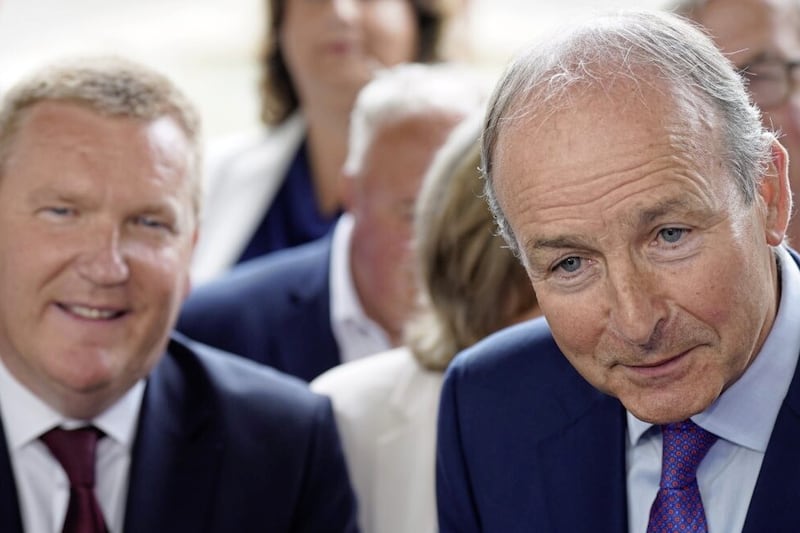It’s not just what you’re given, it’s what you do with what you’ve got which matters. Never was this more true than when applied to a government trying to agree a budget.
Earlier this week, Taoiseach Leo Varadkar, Tánaiste Micheál Martin and Green Party leader Eamon Ryan were joined by Minister for Finance Michael McGrath and Minister for Public Expenditure Paschal Donohoe to discuss the divvying-up of the €6.4 billion budget. No statement was issued after the meeting but over the next two weeks, those discussions will start to yield more detail of what can be expected.
These are the hard yards where departments and ministers try to secure funding for their own areas of responsibility and where the budget discussions trump every other area of political life.
When Michael McGrath gets to his feet on the floor of Leinster House on December 10, he will be trying to strike a balance between the wishes of the spenders and the savers.
Read more:
Central Bank sounds warning around government spending ahead of Budget
Watchdog says ‘no justification' for blanket cost-of-living Budget measures
Dublin urged to commit substantial A5 funding
Unemployment in the Republic of Ireland is at 4.4 per cent. Figures from the Exchequer showed tax receipts of €53.1 billion for the period to the end of August, which is a rise of €3.3 billion on the same period last year. This is down to growth in income tax, VAT and corporation tax.
Whilst those numbers might set the tone for a spender’s budget (chivvied along by the certainty of an election in 15 months at most), the transgenerational trauma of the post Celtic Tiger bust is still writ large. It creates a compelling case for topping up the sovereign wealth fund to mitigate against future recessions or reductions in tax receipts. This is particularly so if further economic growth is constrained by both the labour and housing markets being close to capacity.
But it is evident that money will have to be spent mitigating the cost-of-living crisis. This is going to be less than the additional €4 billion in last year’s budget, but will include a renter’s tax credit and some supports in respect of energy costs. Given the utility regulator announced this week that one in eight homes is in arrears on their energy bills, this measure will be seen as essential.

So why does any of this matter for the north?
Given the financial commitments made by the Dublin government in terms of funding, for example, training for nurses and the A5 infrastructure project, it will be interesting to see whether the budget contains any increase in funding for all-island or cross-border initiatives.
The Shared Island Unit within the Department of the Taoiseach announced this week that it would provide €4.6 million to create a writer’s hub at Bellaghy Bawn, the home village of Seamus Heaney. Similar to the Tyrone Guthrie Centre in Co Monaghan, it will create a space for writers to stay, work and meet together. Additional funding to the Shared Island Unit could see other arts and community projects in the north receive support.
Importantly, this budget is an opportunity for people to take stock of the economic priorities of the Dublin government in the context of discussions around a possible future border poll.
Would investment in health indicate a further move towards a health care system that is free at the point of delivery, whilst still maintaining better health outcomes than in this part of Ireland?
Do the measures put in place to mitigate the worst impacts of the cost-of-living crisis really filter down to those in greatest need?
And what of housing? As an island-wide crisis, what is the government going to do to try and provide durable solutions in the next years to the most politically charged issue of this generation? Measures that are seen to support landlords over those which support tenants or homeowners will not be popular.
With the horse trading likely to go on within the coalition until the eleventh hour, Budget 24 really still is all to play for.







